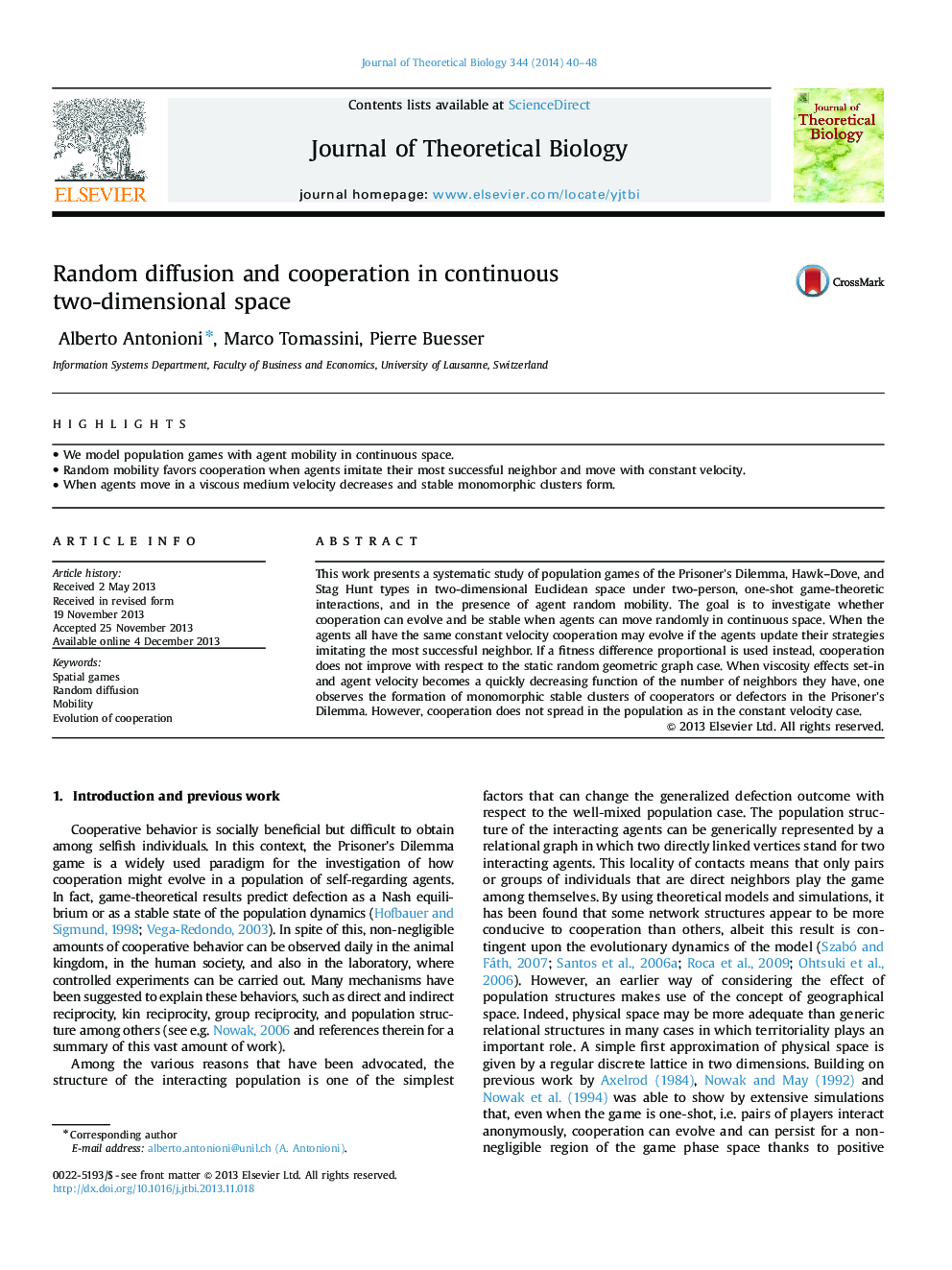| Article ID | Journal | Published Year | Pages | File Type |
|---|---|---|---|---|
| 4496257 | Journal of Theoretical Biology | 2014 | 9 Pages |
•We model population games with agent mobility in continuous space.•Random mobility favors cooperation when agents imitate their most successful neighbor and move with constant velocity.•When agents move in a viscous medium velocity decreases and stable monomorphic clusters form.
This work presents a systematic study of population games of the Prisoner's Dilemma, Hawk–Dove, and Stag Hunt types in two-dimensional Euclidean space under two-person, one-shot game-theoretic interactions, and in the presence of agent random mobility. The goal is to investigate whether cooperation can evolve and be stable when agents can move randomly in continuous space. When the agents all have the same constant velocity cooperation may evolve if the agents update their strategies imitating the most successful neighbor. If a fitness difference proportional is used instead, cooperation does not improve with respect to the static random geometric graph case. When viscosity effects set-in and agent velocity becomes a quickly decreasing function of the number of neighbors they have, one observes the formation of monomorphic stable clusters of cooperators or defectors in the Prisoner's Dilemma. However, cooperation does not spread in the population as in the constant velocity case.
